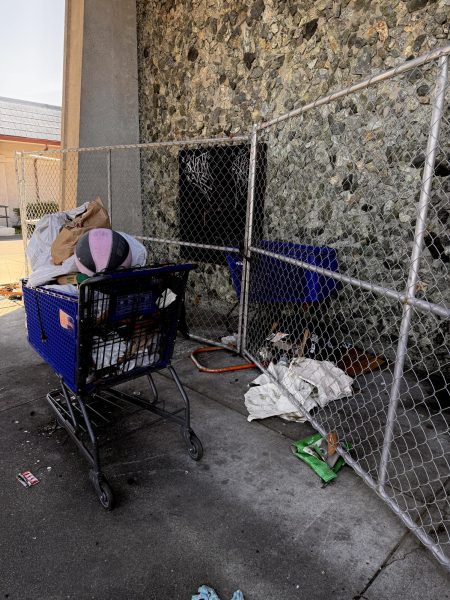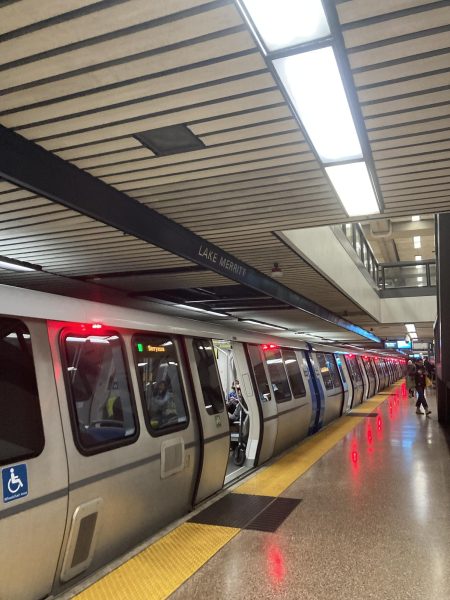Teachers strike closes on seventh day
PHOTO BY ALLI WESEMAN/THE PIONEER
Oakland Teachers prepare to march to the state building on day 6 of the strike on February 28, 2019. The Oakland Education Association and district officials reached a tentative agreement on March 1, 2018.
Oakland teachers and district officials agreed on a tentative contract on March 3, ending the seven-day strike by educators after they were unable to bargain with the district over contractual agreements.
The Oakland Education Association announced in a press release that the union and the school district reached a tentative agreement on Friday, according to KQED.
Educators originally asked for a 12 percent raise over three years, a reduction in class-sizes over two years, and better resources for support staff, including nurses and psychologists.
The new contract includes an 11 percent salary increase and a one-time three percent raise. Teachers can expect “a class reduction in class sizes by one starting next year in the highest-needs schools and a reduction by one at all schools by 2021,” according to ABC 7 news.
Oakland Unified School District members will temporarily stop school closures for five months.
“The demands that OEA is asking for still, by my standards is not a living wage. They say they are asking for a living wage and that’s still not enough to buy a house in Oakland, to raise kids,” said Mission High School Teacher Elizabeth Dutton.
Prior to the vote, Oakland union officials worried that teachers and staff members would not ratify the tentative contract. They pushed the vote from Saturday to Sunday, according to KQED.
Problems persisted during the vote as some educators felt the new agreement didn’t address all of the concerns.
Students and some teachers returned to the picket line on March 4 to protest the school board meeting. Board members voted to cut $21.75 million from the school budget to pay for the teachers raises, according to San Francisco Chronicle. Oakland teachers were joined last Thursday by other teachers across the Bay Area that participated in a sick-out, including educators from San Francisco Unified that shared the same concerns that initiated the union strike.
“It’s important that all teachers are standing with Oakland right now because the fight is not just going to be in one city, the fight will be statewide and we have to come together district after district and we have to join forces so the state will hear us,” said English teacher Erin Gallagher.
Bay Area teachers are familiar with the financial struggles and working conditions that Oakland educators face, although some of them experience different pay grades from across the bridge.
“The fact that we teach in separate school districts is a huge separating mechanism, like it’s easy for me as a San Francisco teacher to say whatever I make more money than an Oakland teacher,” said Dutton. “I live in the East Bay and I choose not to work in Oakland because of the pay and that affects Oakland students.”







